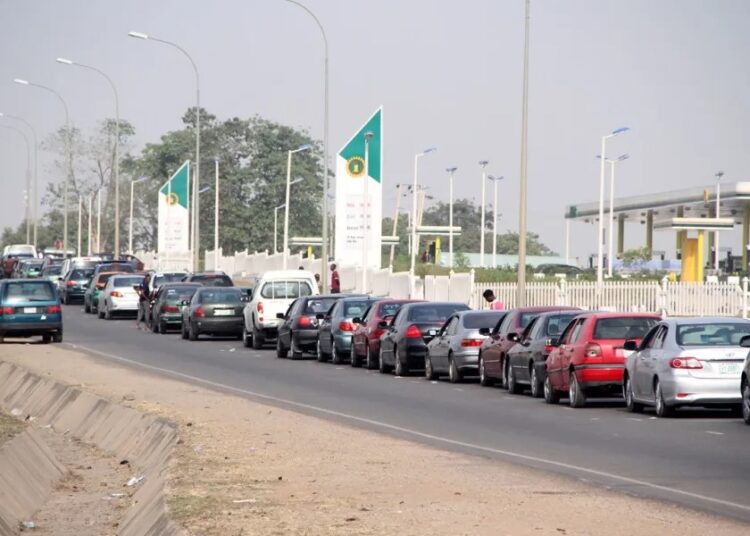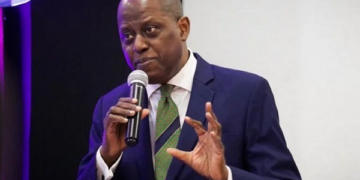Stakeholders in Nigeria’s midstream and downstream have strongly agitated for complete review of existing strategies that will lead to a sustainable future in the petroleum downstream sector.
They collectively appealed for petrol subsidy withdrawal when they converged during a virtual online workshop with the theme ‘Deregulation of the Nigerian downstream sector: The day after,’ organised by the Nigerian Petroleum Downstream industry in collaboration with the African Refiners and Distributors Association (ARDA) held in Lagos.
The authority’s chief executive, Nigerian Midstream and Downstream Petroleum Regulatory Authority, (NMDPRA), Farouk Ahmed, in a goodwill message, assured that the authority will allow free market pricing once the sector was fully deregulated.
The executive director, DSSRI NMDPRA, Ogbugo Ukoha and the director, Policy Coordination, NPA Ghana, equally provided insights on the role of the regulator in pricing, safe operation and enforcement in their presentations at the workshop whilst the managing director, CITAC Africa, Mr Gary Still touched on market liberalisation or elimination of subsidies.
The ES, ARDA, Anibor Kragha shed light on products specifications – ARDA roadmap, regional initiatives (AU / ECOWAS).
DAPPMAN, IPMAN, PETROAN, NARTO and MOMAN equally shared their perspectives on risk management, best practices, and market expectations.
However, the National president of the Nigerian Association of Road Transport Owners (NARTO), Alhaji Lawal Yusuf Othman, in his presentation, warned that the full deregulation of the downstream sector and complete removal of petrol subsidy will introduce a mix of opportunities and challenges into the operating environment.
The managing director, CITAC Africa, Mr. Gary Still, in his presentation, explained that, market liberalisation means the removal of government subsidies and price controls on petroleum products, and allowing market forces to determine the price and supply of petroleum products.
National president, Independent Petroleum Marketers Association of Nigeria (IPMAN), Elder Chinedu Okoronkwo, who was represented by IPMAN’s National Operations controller, Mr. Mike Osatuyi, revealed that, the marketers are in full support of the government’s plan to embark on full deregulation of the downstream sector.
He warned Nigerians to prepare to pay up to N750 for every litre of petrol after the full implementation of the subsidy removal, adding that, the pump price is likely to drop to around N500, if government encourages the Central Bank of Nigeria (CBN) to provide forex to marketers at the official rate.
Osatuyi also urged government to channel savings from subsidy provisions to provide palliatives to the masses, charging the government to be alert and sensitive to resentment from Nigerians.
Industry stakeholders at the workshop called on the government to implement appropriate palliatives in the form of public transportation, freight of agricultural produce, ensure transparent and effective communication, improve access to foreign exchange, trade finance, guarantee strategic stock, and provide access to crude oil for refineries ahead of the plan to embark on the total removal of petrol subsidy.
The workshop offered the industry regulator and all players across the midstream and downstream value chain the opportunity to deliberate on measures that needed to be put in place ahead of the full implementation of the Petroleum Industry Act (PIA) in Nigeria.
Participants at the online session also focused on the need for operators in the industry to institutionalize the professionalization of the midstream and downstream petroleum sectors ahead of the take-off of full deregulation.
MD, NRL, Huub Stokman, highlighted what needed to be in place for a successful transition while 2nd vice president-elect, NGA, Olufisayo Duduyemi, talked on the role of gas as a transition fuel.
The Fiscal Policy Partner and Africa Tax Leader at PricewaterhouseCoopers (PwC),Mr. Taiwo Oyedele, in his presentation, charged the government and the regulator to identify potential pitfalls that could trigger resentment from citizens before, during, and after the removal of the petrol subsidy.





